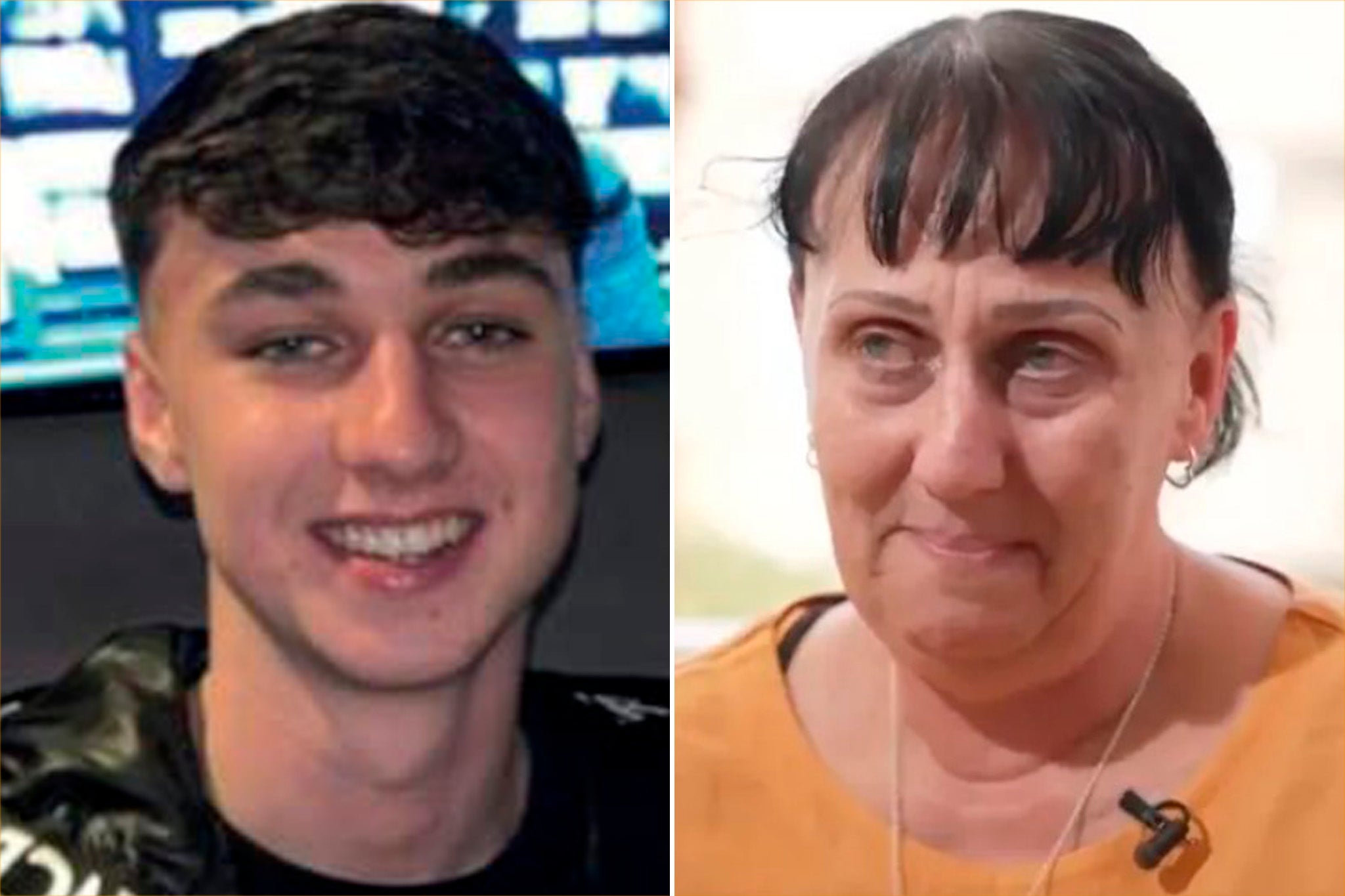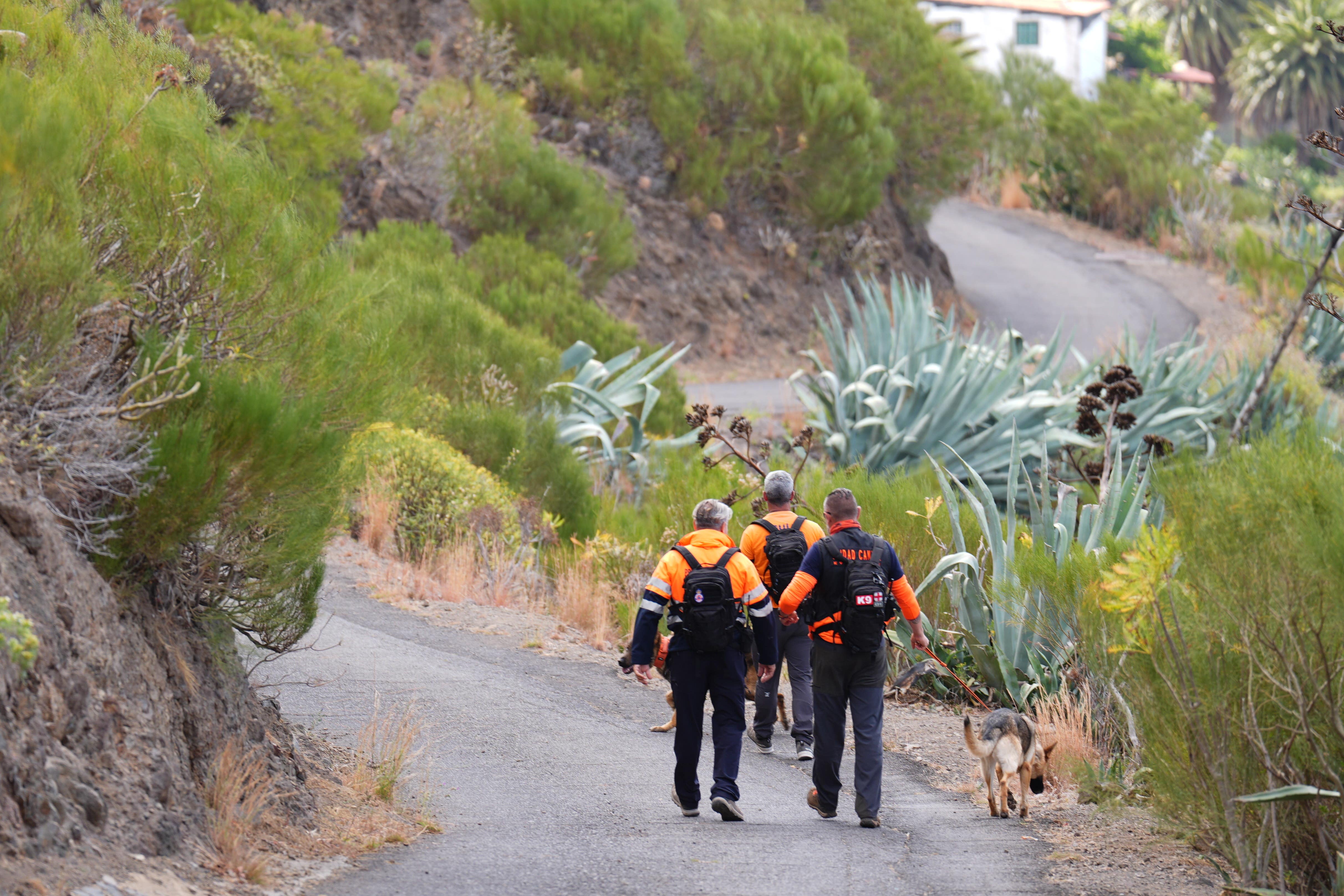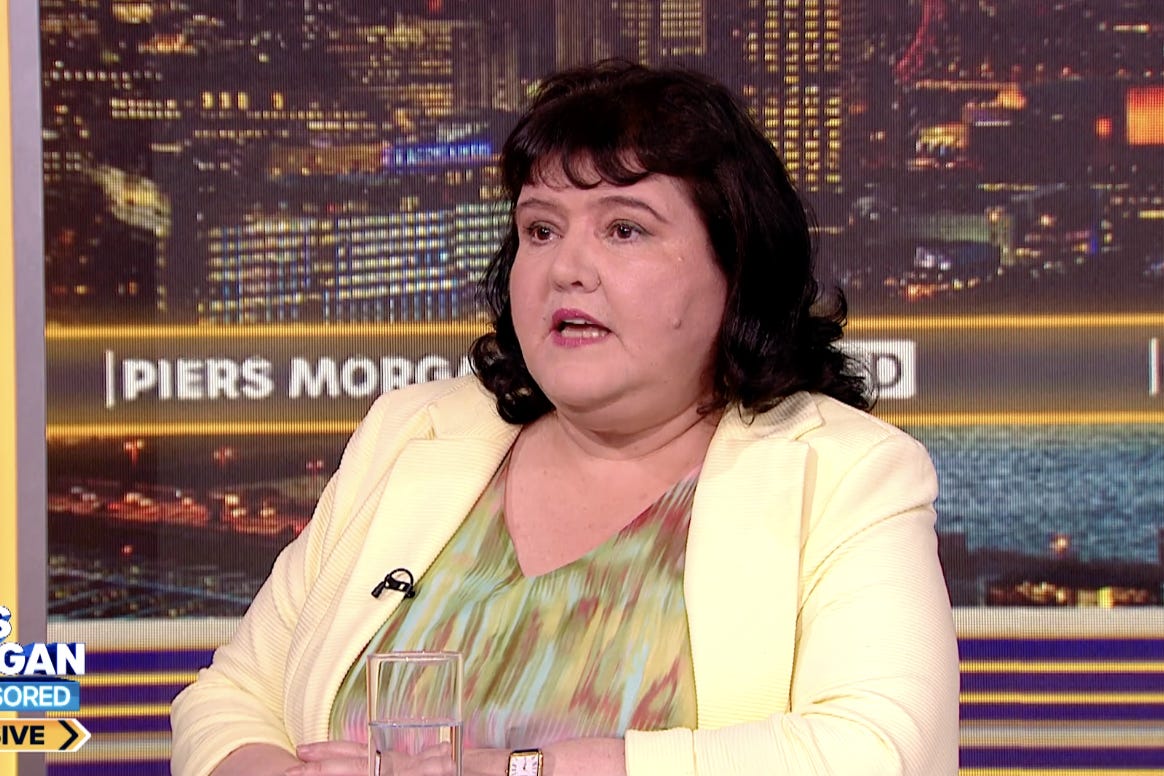The Independent's journalism is supported by our readers. When you purchase through links on our site, we may earn commission.
Jay Slater’s disappearance has exposed the horrifying cruelty of social media
Trolls mocking missing Jay Slater, Baby Reindeer’s real-life Martha tracked down and hounded online, armchair sleuths endlessly theorising about Nicola Bulley’s disappearance – Helen Coffey asks, when did we collectively lose our empathy?


Your support helps us to tell the story
From reproductive rights to climate change to Big Tech, The Independent is on the ground when the story is developing. Whether it's investigating the financials of Elon Musk's pro-Trump PAC or producing our latest documentary, 'The A Word', which shines a light on the American women fighting for reproductive rights, we know how important it is to parse out the facts from the messaging.
At such a critical moment in US history, we need reporters on the ground. Your donation allows us to keep sending journalists to speak to both sides of the story.
The Independent is trusted by Americans across the entire political spectrum. And unlike many other quality news outlets, we choose not to lock Americans out of our reporting and analysis with paywalls. We believe quality journalism should be available to everyone, paid for by those who can afford it.
Your support makes all the difference.Over the weekend, I assumed that Jay Slater, the teenage boy who disappeared during a holiday to Tenerife, must have been found safe and well. This was the only explanation, I reasoned, for the plethora of flippant comments – ranging from gently mocking to downright nasty – flooding social media.
“Has the search party looking for Jay Slater tried shouting ‘Autoglass repair’. If he’s in the vicinity he will shout back ‘Autoglass replace’,” read one.
“If #JaySlater has been on the gear then he’ll have a dose of the munchies. Has anyone thought about shouting ‘Domino hoh hoo’ into the valley?”, went another.
“I’m sick of hearing about that evil c*** that’s gone missing in Tenerife, Harry Kane and Phil Foden have been missing since 16th June and no one set a GoFundMe to find them,” reads a particularly vitriolic offering. (I’m loath to even share it here, other than to demonstrate how grimly low the level of discourse has stooped.)
When I realised that Slater’s whereabouts in fact remained unknown after more than seven days – and that his loved ones are still, quite naturally, sick with worry after his final message last Monday confirmed that he was lost and alone in the mountains, with almost no phone battery and no water – I felt sick myself. The callousness and cruelty defied comprehension. Why were people online treating the whole thing as one big joke? What on earth happened to our collective compassion?
Neither has the 19-year-old’s mother, Debbie Duncan, been spared the derision and ire of the internet. In the aftermath of every mother’s worst nightmare, her every word has been dissected and analysed, her every facial expression unpicked and judged by a crowd of strangers.
A sample tweet: “I’m sorry man but it’s so funny that Jay Slater’s mum flew over to Tenerife ‘to help search for him’ and then immediately after landing said yeah actually I’m not gonna help the search coz I don’t wanna be the one to find him. That, love, is a holiday.”

Many internet users have hit out at a GoFundMe page set up by Slater’s family, which has currently raised in excess of £32,000. It made no difference that Duncan made clear no money has yet been withdrawn, and that the family is “currently covering the expenses, such as the trip to Tenerife and accommodation, ourselves”. She added: “The funds will remain on hold with GoFundMe until we post a further update on this page.”
The court of public opinion had already come up with their own interpretation of events to fit a well-trodden narrative: Slater was a young man undeserving of our sympathy, clearly mixed up in drugs or other dodgy dealings; his family were rank opportunists, using the hellish situation to make a quick buck.
The trolling became so bad that a distraught Duncan was compelled to respond, addressing members of a Facebook group on which endless rumours and outlandish theories about Slater’s disappearance have been circulating frantically since he vanished on the Canary Island following the NRG music festival.
“I really am saddened by all your comments. You seem to be so bothered about this GoFundMe page,” she wrote. “I really hope I am not taking my son home in a body bag.”
For that is the starkly tragic reality of the situation; after this length of time, there’s every chance Slater will not be found alive. And a concerning majority of onlookers seem to have completely disconnected from the fact that this story involves real people with real lives and real emotions.
A concerning majority of onlookers seem to have completely disconnected from the fact that this story involves real people with real lives
“I really cannot believe the British public are not supporting me in trying to find Jay,” added his mother. “This may happen to any of you one day. Very let down by you all.”
It’s “depressing but not surprising that people are predator-trolling the mother of Jay Slater”, according to Ginger Gorman, global cyberhate expert and author of the bestselling book, Troll Hunting.
She explains that the psychological profile of “predator trolls” – people who use digital devices to inflict real-life harm – is that they are sadists. “They enjoy hurting you and, bizarrely, feel good about themselves when they do,” she says. “It gives them a perverse sense of power.” Finding victims’ weaknesses and exploiting them, this type of troll would see Duncan as an easy target. “She’s heartbroken,” says Gorman. “So it’s actually devastatingly predictable that this is the mechanism by which she would be targeted by predator trolls. Trolls often use people’s children as their vulnerability.”
Gorman’s research has also shown that predator trolls will typically use a news story with a lot of heat around it to gain attention, a trait shared by actors in the “professional” trolling business – those who have learnt to monetise outrage and use hateful speech for financial gain.

And trolling and online bullying is a “major issue that’s on the increase”, says Christine Pratt, founder of The National Bullying Helpline – so much so that the charity has recently taken on as an ambassador the divisive “villain” of the second series of BBC One’s reality hit The Traitors, Paul Gorton, who experienced social media trolling after the show aired. “Bullies bully because they can,” she adds. “In the UK we need to start seeing prosecutions – the police need to take action against trolls. We can’t put them all in prison or take all of them to court, but in the very worst cases, trolls being prosecuted or sued would act as a deterrent.”
But many people who would never consider themselves trolls in the traditional sense have started to become involved in the online conversation when it comes to stories with a mystery element. We saw it in the case of Nicola Bulley, who disappeared while walking her dog in January 2023; in the two weeks prior to the discovery of her body and subsequent conclusion that she died of natural causes, any number of wild theories were whipped up by internet onlookers in a manner that felt increasingly intrusive and uncomfortable.
We saw it with the swift and ruthless online hunt for the real-life Martha after Netflix show Baby Reindeer became an overnight sensation; despite the portrayal of the character depicting an incredibly damaged and vulnerable woman accused of stalking, viewers ruthlessly tracked her down and hounded her on social media.
Inspired by true crime podcasts and spurred on by like-minded online communities, a huge number of civilians quickly got swept up in the “excitement” of each of these cases, seemingly forgetting the seriousness of the situations in their quest to play armchair detective.
People might start out feeling genuinely concerned about the situation and like they want to help, but it becomes a game for them
“It’s the kind of thing people want to engage with; they don’t want to be a bystander,” says Dr Sara Polak, an academic and co-author, along with Dr Daniel Trottier, of the book Violence and Trolling on Social Media: History, Affect, and Effects of Online Vitriol. “People might start out feeling genuinely concerned about the situation and like they want to help, but it becomes a game for them. Social media and the internet provide the opportunity to research online, look for clues, say your bit and share your theories; it’s a game for entertainment.”
This social media sleuthing leads to “apophenia,” says Polak. The term found in game design refers to a phenomenon in virtual reality or escape room games whereby things people interpret as clues turn out to be meaningless. In the world of the digital detective, apophenia abounds; we are “pattern-seeking animals” who “see patterns everywhere”, says Polak. And our confirmation bias means that once a conclusion has been drawn, however false, we spot “evidence” to back up our opinions (and filter out the facts that don’t fit). “They find a trail that leads them somewhere, and really feel like they’re onto something, because it resonates with familiar cultural tropes – for example, in the case of Jay Slater, that 19-year-old boys aren’t to be trusted.”

The widening of demographics who feel it is their right or even their duty to involve themselves in these cases has become much more mainstream in recent years, partly accelerated by lockdowns spent on the internet, says Dr Trottier: “The internet became our window to the world.” It went hand in hand with feeling out of control in an increasingly erratic wider landscape typified by grievances that made people fearful, ranging from a scant job market to shrinkflation; it went hand in hand with a growing scepticism of the mainstream media. “Do your research,” has become the regular battle cry of conspiracy forums like QAnon and 4Chan; becoming an armchair detective, and questioning the motivations behind, for example, a grieving family’s GoFundMe page instead of empathising with them, allows people to feel they are doing just that.
So, have we reached peak cruelty online? Sadly it seems unlikely, according to Dr Trottier. “It’s bad, and this most recent case starts to look like an episode of Black Mirror – but it can always get worse,” he warns. Think AI in the hands of predator trolls; think online tools used to punish women in Russia caught fraternising with the “wrong” kind of man.
The National Bullying Helpline thinks the answer is to eradicate anonymity online with an ID system. Gorman is an advocate for a legislated duty of care, so that social media platforms themselves are responsible for keeping users safe rather than monetising vitriol.
In the meantime, Gorman’s parting words to me are worth bearing in mind before you share your opinion online, whether it’s an off-the-cuff joke, glib remark or well-meaning theory based on fundamentally limited research: “Jay’s parents deserve love and support. Can you imagine if this was your child? As a mum myself, I fear the worst but hope for the best.”
Join our commenting forum
Join thought-provoking conversations, follow other Independent readers and see their replies
Comments